.
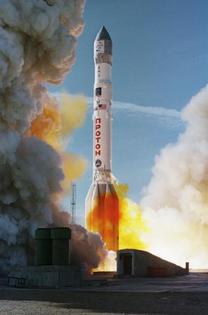
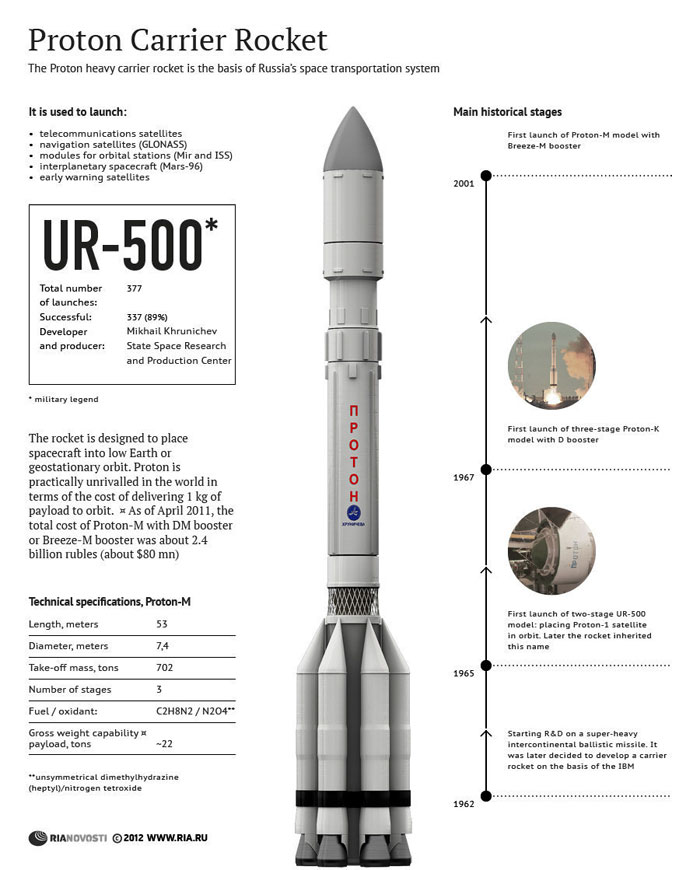
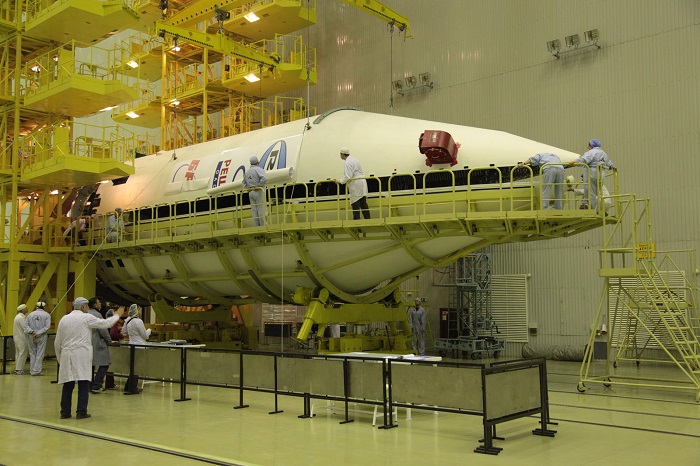
End: 04:08:0 March 16, 2014 (Moscow time, MSKS).
Launch time: 03:08:00 March 16, 2014 (Moscow time, MSKS)"
Start in GMT heute um 23:08, in MEZ morgen um 00:08
Proton-M carrier rocket with two satellites to be launched March 16
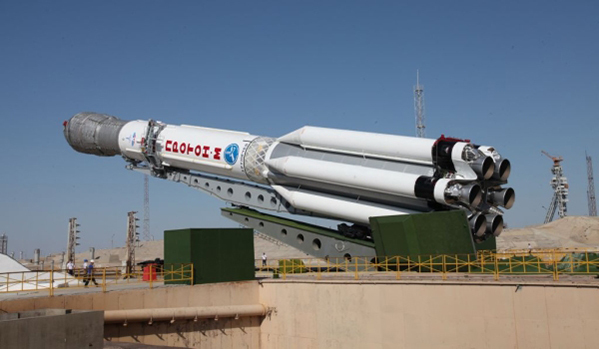
A Proton-M carrier rocket with two communications satellites on board installed on a launch pad at Baikonur Cosmodrome, Kazakhstan, will be launched on Sunday, March 16, the Federal Space Agency (Roscosmos) said.
The liftoff is scheduled for 03:08 March 16, Roscosmos said on Saturday, March 15.
The carrier rocket and ground equipment underwent pre-launch checks and the rocket was filled with fuel.
Express AT-1 and Express AT-2 satellites were made by the Reshetnev Information Satellite Systems in cooperation with the French company Alenia Space for Space Communications under the Russian Federal Space Programme for 2006-2015.
Proton-M carrier rocket with two satellites abroad installed on Baikonur launch pad
A Proton-M carrier rocket with two communications satellites aboard was installed on a launch pad at Baikonur Cosmodrome, Kazakhstan, on Wednesday, March 12.
The carrier rocket and ground equipment will undergo pre-launch checks and the rocket will be filled with fuel. Its launch is scheduled for 03:08 am Moscow time (11:08 pm GMT) March 16.
Proton-M put Turkish satellite into orbit from Baikonur
The TurkSat-4A Turkish satellite launched from Baikonur on Saturday with the use of a Proton-M rocket is put into orbit, a Roscosmos source said. The satellite safely separated from the Briz-M upper stage at the planned time, he source said.
TurkSat-4A belongs to the Turkish satellite communication operator Turksat AS. The 3,800-kg satellite made by the Japanese Mitsubishi Electric (MELCO) Corporation will be used to provide TV broadcasting services for Turkey, Europe, Central Asia, the Middle East and Africa.
"The TurkSat-4A spacecraft separated from the upper stage and has been handed over to the client's control," a Roscosmos spokesperson said. The TurkSat-4A belongs to the Turkish satellite communications operator Turksat AS and is designed to provide TV broadcasting and broadband Internet services in Turkey, Europe, Central Asia, the Middle East and Africa.
The satellite was manufactured by the Japanese corporation Mitsubishi Electric (MELCO) on the basis of the DS2000 MELCO modular platform, is carrying Ku-, Ka-, and C-band transponders, and weighs 4,869 kilos.
The satellite's service life is 30 years. This has been the second space launch Russia has carried out in 2014. A week before, a Soyuz-U rocket carrying the Progress-M-22M expendable freighter spacecraft had been launched from Baikonur.
This was the first Proton launch in 2014. It was reported earlier that Russia had carried out 32 space launches in 2013 out of a total of 82 performed by all countries. It was the first commercial launch by Russia this year.
One of the Russian launches ended up in a crash, and one more was partially successful. Russia performed 23 space launches from the Baikonur space center, 7 from Plesetsk, and 2 from the Yasny launch pad in 2013.
A Soyuz-ST rocket was also used in two launches from the Kourou space center and the Russian-Ukrainian Zenit-3SL rocket in a launch under the Sea Launch program.
In addition, a Russian first stage was used as a component of the South Korean rocket KSLV-1, and it will also be used on the Angara rocket.
The US performed 19 space launches, China 15, France 7, Japan and India 3 each, Iran presumably 1, and South Korea and the Sea Launch consortium 1 each.
Proton-M space vehicles were used in 10 Russian launches in 2013, Soyuz-U, Soyuz-FG, and Rockot in 4 each, Soyuz-2.1b in 3, Soyuz-2.1a and Dnepr in 2 each, and Soyuz-2.1v, Zenit-3SL (Land Launch), and Strela in 1 each.
Quelle: Voice of Russia
Two Russian telecom satellites put on pre-calculated orbit
.
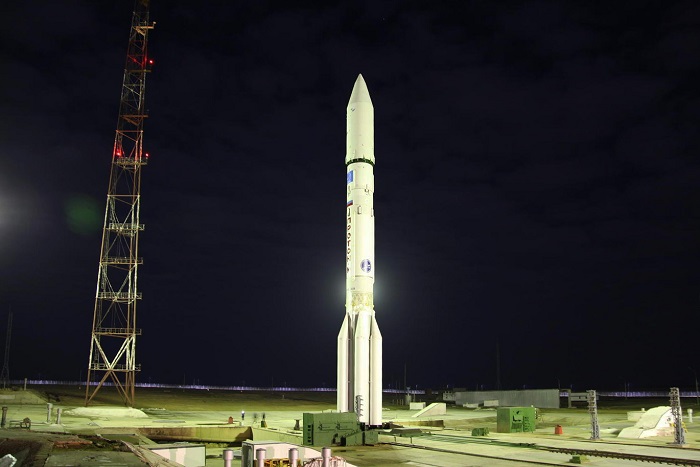
.
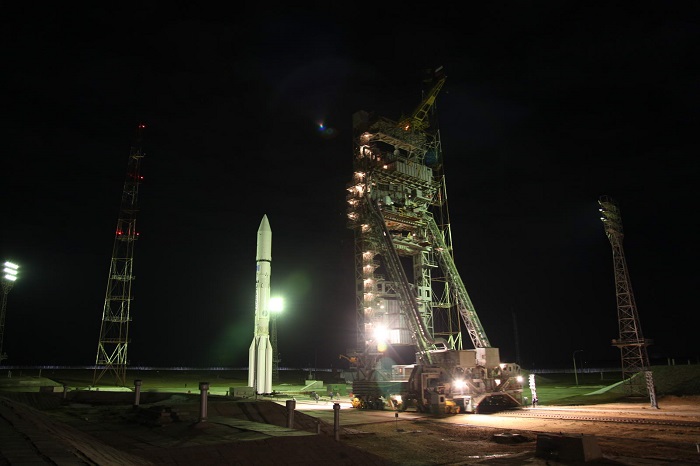
.
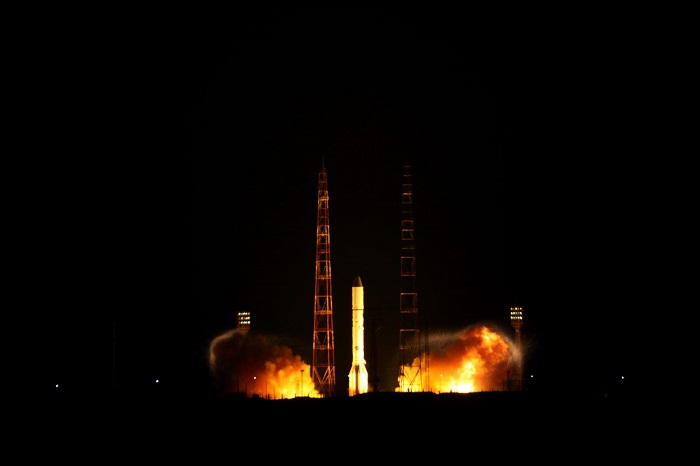
.
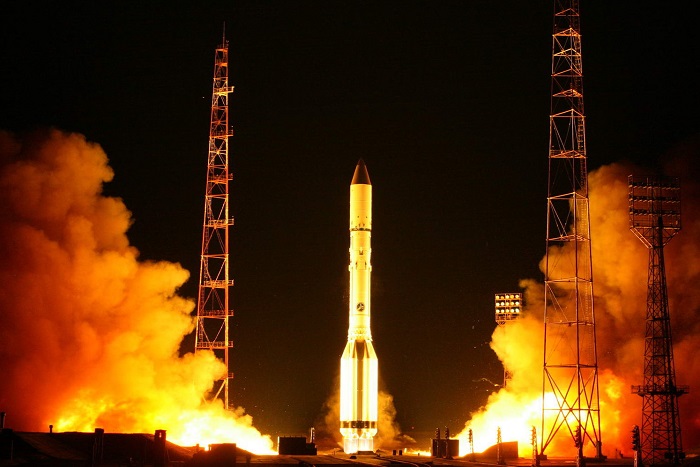
Quelle: Roscosmos
MOSCOW, A telecommunications satellite Express-AT2 created on the order from Russian space communications operator was put at 12.28pm Moscow time on pre-calculated orbit successfully on Sunday.
Proton-M carrier rocket with satellites Express-AT1 and Express-AT2 was launched at 3.08am Moscow time from the launching pad number 200 of Baikonur spaceport. Upper stage rocket Briz-M has separated from the booster at 3.17am Moscow time nine minutes after the start and continue to bring the satellites on the orbit.
Satellite Express-AT1 was the first to separate from the booster at 12.10pm Moscow time, telecommunications satellite Express-AT2 has reached its orbit at 12.28pm Moscow time.
Reshetnev Information Satellite Systems jointly with French company Thales Alenia Space has produced geostationary medium-sized telecommunications satellites Express-AT1 and Express-AT2 on the order from enterprise Space Communications within Russia’s federal space programme for 2006-2015. The satellites provide for telecasting in western and eastern Russia in ku-range and replenished the grouping of Express satellites.
Quelle: ITARTASS
.

